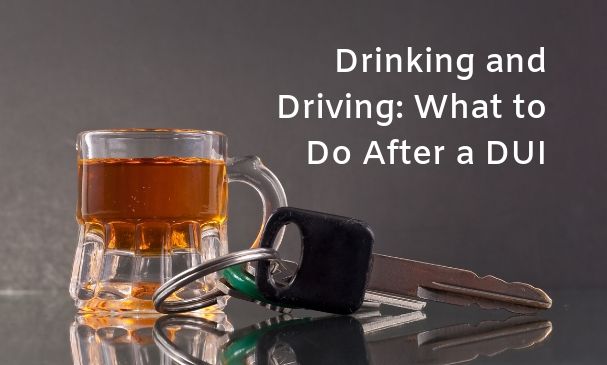Drinking and Driving: What to Do After a DUI

A night of drinking coupled with impaired judgment can quickly take a treacherous turn. If you drove a vehicle while intoxicated and are now dealing with the consequences, explore what to do after a DUI to become a more responsible drinker.
Your First DUI
Post-DUI, most people just want to get their driving privileges back—but that’s easier said than done. A few possible consequences of a first DUI conviction include a suspended license, fines, a prison sentence (for serious offenses), drunk driving education, a substance abuse evaluation, and/or a mandatory court appearance. Unfortunately, even a first-time DUI offense can end up costing perpetrators anywhere from $10,000 to $25,000.
When the police pull you over for a suspected DUI offense, they first administer a sobriety or breathalyzer test. In all 50 states, a first-offense DUI is classified as a misdemeanor, meaning that you can face up to six months in prison. Some states extend jail time if your BAC is much higher than the legal limit of .08%. In addition to a brief stint in jail, perpetrators will likely face fines—sometimes up to $2,000.
DUI offenders will also likely get their licenses suspended for a fair amount of time. After the police officer takes away your license, a 10-day permit can be issued, allowing you to drive your car for 10 days afterwards. However, a first-time DUI conviction carries a mandatory minimum license suspension of 180 days. After their convictions, most DUI offenders also have to get SR22 insurance, a specific type of vehicle insurance that your provider may impose on you after you get a DUI.
Each DUI offense ends with a criminal court proceeding—you can choose to represent yourself or hire a DUI lawyer to represent you. The most beneficial outcome for you would be the opportunity to bargain for a plea deal, which you can’t do without a lawyer. Getting your DUI charge reduced to a lesser offense means the possibility of expunging it from your record, lower fines, and getting back on the road faster.
Repeat Offenses
All of the above penalties increase in severity if you’re a repeat DUI offender. A common consequence of multiple DUI convictions is getting your car impounded. During your arrest, police officers will arrange to have the vehicle taken to an impound lot. The vehicle may remain on the premises for a period of 90 days, after which it may be auctioned off or sold for parts. Many states also put offenders with multiple DUIs into mandatory alcohol rehabilitation centers.
A second DUI is still considered a misdemeanor, coming with a fine of $2,500 and a maximum jail sentence of one year. Once you’ve been subject to a third DUI arrest, charges increase to a Class 4 felony. Penalties for that include up to three years in prison, but more moderate consequences include a $2,500 fine along with probation. A fourth DUI—and anything beyond that—is considered a Class 2 felony. Probation for individuals with four or more DUIs is prohibited; instead, they must serve prison sentences of three to seven years.
If you’re looking for SR22 insurance in Washington, trust Serenity Group to get you back on the road in safest and most efficient way possible.

Recent Comments